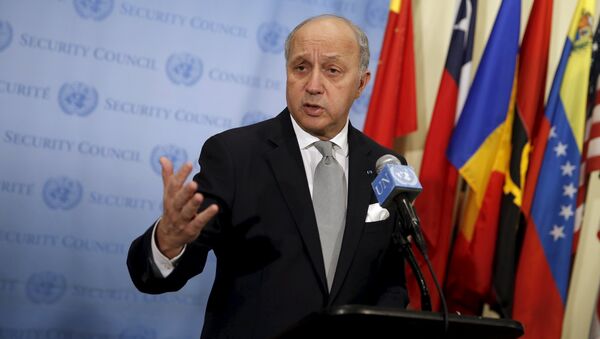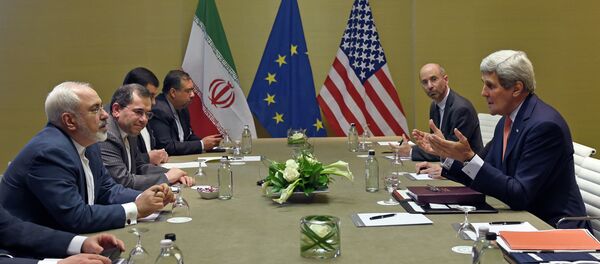MOSCOW (Sputnik) — A deal between Tehran and world powers that does not allow monitors to inspect Iranian military sites could trigger a nuclear arms race in the Middle East, French Foreign Minister Laurent Fabius said in an interview published Monday.
The P5+1 negotiators and Iran are working toward the end-of-June deadline to sign a comprehensive plan of action that would ensure the peaceful nature of the Islamic Republic’s nuclear energy program in exchange for an easing of sanctions against it.
"Several countries in the region would say, OK, a paper [has been signed] but we think it is not strong enough and therefore we ourselves have to become nuclear," Fabius told the Wall Street Journal.
In April, Iran agreed to curb its uranium enrichment and let monitors from the International Atomic Energy Agency verify the process as part of a framework deal with the world powers. Yet, Fabius cautioned that the agreement would not work if access to Iran’s secret facilities is postponed or denied.
"If it is too long a delay, they [Iran] have enough time to change everything," Fabius said.
The P5+1 group comprises China, France, Russia, the United Kingdom, the United States and Germany.




